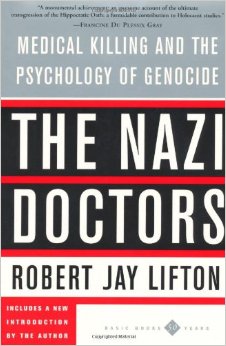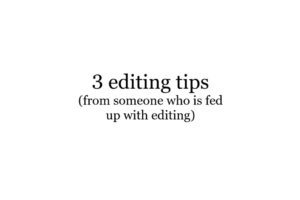
The Nazi Doctors: Medical Killing And The Psychology Of Genocide by Robert Jay Lifton
When it comes to devastatingly monstrous events in history such as the Holocaust, it’s easy to appreciate why most people would want to remain ignorant of the details. It’s enough to know that tortures and murders took place without the imagination being plagued by individual acts of horror. It takes a very brave person with a very specific goal in mind to delve into such inhumane acts of psychotic malevolence, and one such person is Robert Jay Lifton.
This book explores the reasons why so many professional doctors during the reign of Hitler decided to kill innocent and often vulnerable citizens. From the very first page of the book, Lifton addresses his drive to research and write about such a terrible topic, particularly as many of his friends and acquaintances tried to dissuade him from doing it. After all, what’s the point in subjecting yourself to unimaginable and unspeakable evil? What could possibly be learnt from it?
Lifton replies to such questions in a truly humbling manner; he believed it was vital to know how so many clever men, who studied for years to save the lives of others, were persuaded to go against everything they’d been taught and commit murder. What reasoning could have possibly altered the minds of logical, intelligent men with such in-depth knowledge of science? If highly educated people can be brainwashed to euthanise healthy children, what hope is there for the average man or woman? How can anyone possibly stop a totalitarian power from taking over again if the finest minds of society can’t stand up to it?
The information and evidence presented in The Nazi Doctors is harrowing, and I found it incredibly difficult to stomach at times. I could never read more than a few pages before putting the book down, disturbed as I was by the astonishing and horrendous events that I never knew took place. I was continually shocked to read at what extent Hitler and the Nazis would go to for power and dominance. So many people died with witnesses watching, not in the covert way it is often described. However, the build-up for its legitimisation was complex and well-planned and Lifton breaks this down in a very straightforward manner in his book.
It’s upsetting to learn the number of those who died during World War II. It’s even harder to see the photographs. But to hear the practices used, the excuses made and the evidence accumulated from such a dark part of western history is another thing altogether. The Nazi Doctors turns facts into reality and gives all those hundreds and thousands and millions of people a face.
Devastating but important, there’s no doubt in my mind that this book should be taught in schools. We need to learn from history, and not just numbers, statistics and politics, but the psychology behind war. There are far too many parallels in this book with today’s society, particularly in regards to Trump and the Tories use of scapegoats to appease negative aspects of society. Fear mongering was one of Hitler’s most successful tactics, and the signs are all there to learn from – we just deem it too unpleasant to acknowledge.
Knowing of the existence of World War II is not going to stop similar horrors from happening. We need to know the thoughts behind these types of actions, because Hitler wasn’t an evil demon – he was a human being. We also need to learn about our vulnerabilities as well, and how people inadvertently fuelled such a nightmare from becoming reality.
I’m not going to lie, this book has really affected me, but I don’t regret reading it for a second.
This review is part of my 2017 Reading Challenge.



Leave a Reply